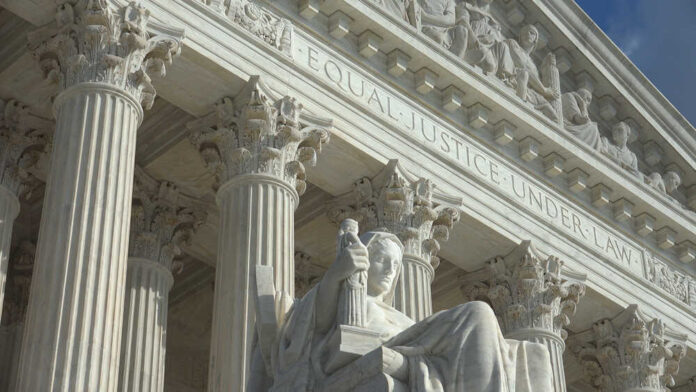
The Supreme Court is considering a case that could be key to future elections. The judicial branch is considering Moore v. Harper, which could shift perceptions of how American governance occurs and would likely play a major role in which party controls Congress in the 2024 election.
The plaintiffs in the case believe that individual state legislatures have more latitude in how they administer federal elections.
This includes the ability to largely conduct the races without interference from individual state courts or governors. The case emerged after the previous session of the North Carolina Supreme Court dismissed a Republican redistricting plan.
The state’s Supreme Court has changed in composition, with Republicans now representing the majority of the body.
As a result, if the North Carolina high court issues a ruling in favor of the Republican challengers, the state would redistrict significantly from the current seven likely-Republican seats and seven likely-Democratic ones.
The result would be a map of 11 mostly-conservative districts and three that would likely favor Democrats. Such a shift in North Carolina could sway the majority party in the House in 2024. In addition, the change would likely lead to other states considering redistricting changes.
The new conservative majority agreed to hear the case and rejected the court’s previous ruling.
Should the Supreme Court take up the case, the court would determine whether or not the Article I, Section 4 clause in the Constitution which reads that “The Times, Places and Manner of holding Elections for Senators and Representatives, shall be prescribed in each State by the Legislature thereof” includes cases like this.
Regardless of the Supreme Court’s decision, there will likely be significant repercussions.
Should the court rule in favor of the North Carolina Republicans, there would likely be a significant increase in state power in terms of redistricting and other crucial elements of federal elections.
This would not be the only recent case in which the Supreme Court played a major role in determining the winner of a high-profile election.
The Supreme Court has an electoral ‘bomb’ on its hands. Will it defuse it before 2024? https://t.co/vK8N64TMhh
— POLITICO (@politico) May 13, 2023
In 2020, the Supreme Court did not accept the arguments of former President Donald Trump regarding that year’s election.
Furthermore, in 2000, the Supreme Court made the crucial decision regarding the difference between Vice President Al Gore and future President George W. Bush over a narrow electoral margin in Florida. The Supreme Court determined that Bush won the state’s electoral votes, leading to his tenure in the White House.














